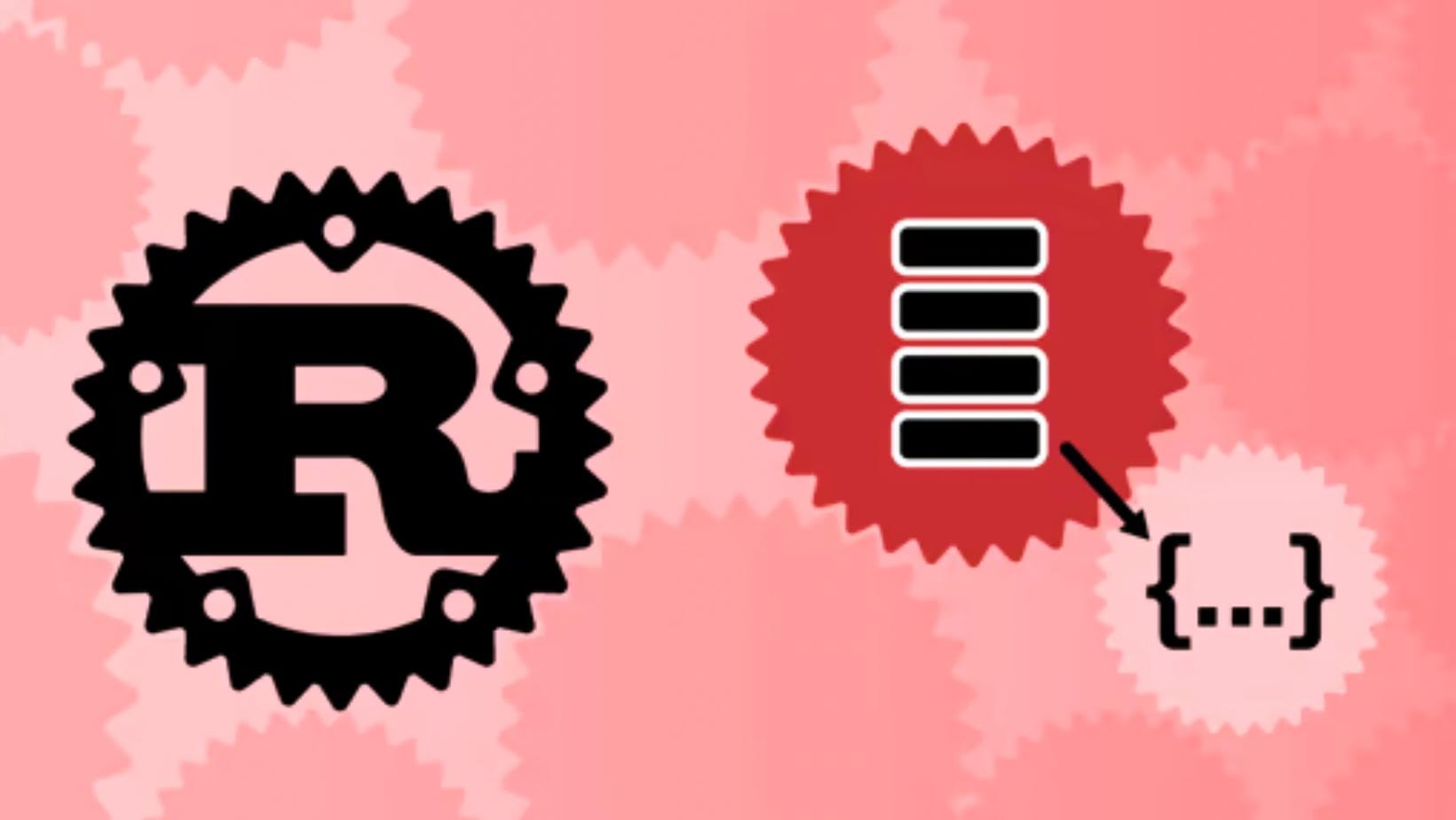What is Rust Programming Language and Why it is Popular
Fawzan Hussain
6 Jan 2022
•
7 min read
What is Rust, and why is it so popular nowadays? If you're a newcomer to the world of computing, you may have stumbled upon this question. While Python and Java remain the most widely used programming languages today, Rust would be another language that is rapidly gaining traction. In this article, you will get to learn about the reason behind Rust's importance.
About Rust
Rust is a popular programming language created by Graydon Hoare at Mozilla Research with assistance from everybody else. It's a statically typed, multi-paradigm, advanced, all-purpose programming language that's been designed to assure better performance and safety, and it performs admirably in terms of speed and precision. Rust is a computer language that is similar to C++ in syntax but lacks garbage collection.
It's vital to remember that Rust has no-cost abstractions, generics, and functional features, which solves most of the challenges that programmers with other low-level languages face. Consequently, Rust is used to create a variety of websites and applications, including 1Password, Figma, NPM, Coursera, Mozilla, Atlassian, Dropbox, and others. Furthermore, Microsoft's use of Rust for reliable and safety-critical development tools has strengthened the language's reputation. In reality, since 2016, the Stack Overflow Developer Survey has ranked Rust as the most popular programming language.
Why is Rust so popular?
1. Rust solves Memory Management Issues.
Low-level memory management is common in-system programming, and with C's manual memory management, this chore can be a total hassle.
Rust has a remarkable ability to provide convenience in small aspects. Since it doesn't need a garbage collector to run in the background, it has full access to hardware and storage.
This means that low-level writing code in Rust feels like writing code for a microcontroller. You have complete freedom to update code without jeopardizing memory safety.
2. Rust is excellent for embedded programming because of its low overhead.
With embedded systems, which are typically found in machines and home appliances, limited resources are usual. This is why programming languages with little overhead, such as Rust, are required for embedded devices.
In an embedded device, Rust is a resource-efficient and in-demand element. It enables programmers to detect bugs early on, avoiding potential device malfunctions.
Rust's ability to create zero-cost abstractions is the icing on the cake. Rust is flexible enough to accept any abstraction of code you choose to employ. You can use loops, closures, or whatever flavour of code you like that day, and all of them will compile to the same assembly without hurting the performance of your work.
3. Rust Makes It Easier to Create Powerful Web Applications
The programming language is a crucial consideration when selecting the correct technology stack for web app development. There are several compelling reasons to incorporate Rust programming into your web application architecture.
You'll enjoy working with Rust if you're used to designing web applications in high-level languages such as java or Python. You can be quite certain that the code written in Rust will be error-free.
Anyone already familiar with C will find Rust to be a breeze to learn. Furthermore, you may begin dabbling with Rust right away without having to spend years learning the ropes.
The following are some of the main benefits of using Rust for web development:
Rust can be compiled to WebAssembly, making it easier to achieve near-native web performance. Rust permits any language to compile to WebAssembly, enabling portable, online-executable code.
4. Rust's static typing makes it simple to maintain.
Rust is a language that is statically typed. All types are known at compile time when programming in Rust. Rust is indeed a strongly typed language, which makes it more difficult to develop the wrong programmes.
Successful programming relies on the ability to manage complexity. The complexity of the code increases as it expands. By allowing users to keep track of what's going on within the code, statically typed languages provide a high level of simplification.
Rust also encourages long-term manageability by not requiring you to repeat the type of variable many times.
5. Rust is a high-performance material.
Rust's performance is comparable to C++, and it easily outperforms languages like Python.
Rust's rapid speeds are due to the lack of garbage collection. Unlike many other languages, Rust does not have runtime checking, and the compiler catches any incorrect code right away. This stops erroneous code from spreading throughout the system and wreaking havoc.
Furthermore, as previously said, Rust is lightning fast on embedded platforms as well.
6. Development and Support for Multiple Platforms
Rust is unique in that it allows you to program both the front-end and back-end of an application. The existence of Rust web frameworks such as Rocket, Nickel, and Actix simplifies Rust development.
Open Rustup, a rapid toolchain installer and version management tool, and follow the instructions to develop with Rust. You can format the code in any way you want. Rustfmt automates the formatting of code using the standard formatting styles.
7. Ownership
Unlike many other languages, Rust has an ownership mechanism to manage memory that isn't being used while the programme is running. It contains a collection of rules which the compiler verifies. In Rust, each value has a variable known as its holder. At any given time, there could only be one owner. When a variable passes out of scope, ownership is relinquished, which implies clearing the memory allocated to a heap when the variable could no longer be used. Unlike some other languages, the ownership laws offer benefits such as memory safety and finer memory management.
8. Borrow checker
In Rust, the borrow checker eliminates data races during compilation. When two threads read the same memory simultaneously, data races occur. Rust prohibits undefined behaviour like this.
9. Rust is home to a diverse ecosystem.
The Rust ecosystem is rapidly growing as a result of Rust's growing popularity. It's much more than a system or a compiler, which is crucial in the large ecosystem. Many more factors go into software production quality, and the Rust ecosystem believes them to be very important.
To begin with, Cargo is a command-line tool that lets Rust programmers manage dependencies, run checks, and generate documentation. The growing popularity of Rust has led to several rust programming jobs all over the world.
Second, Rust offers a community site called crates.io that handles all of your Rust library requirements. On docs.rs, you may obtain documentation for any library published on crates.io. Property-based verification, benchmark, and fuzzing are also available to aspiring Rust programmers. It's also simple to network and benefit from the experts. Several Rust conferences, such as RustConf, RustBelt, and RustFest, are rich mines of information for Rust developers.
10. Rust is an excellent language for writing IoT code.
Rust is the most popular programming language for IoT developers.
With the introduction of gadgets like the Raspberry Pi and Arduino, the maker movement has exploded in popularity. This is a must have book for every beginner programmer. Rust can be used in situations when memory is constrained.
As a result, Rust is a great language for writing code for microcontroller hardware like the Raspberry Pi, Arduino, and Tessel.
What are the perfect use cases for Rust?
So, what are the instances in which Rust would be ideal? First, Rust's safety mechanisms come in handy when it comes to limiting certain types of defects during compilation. It's also a solid pick for apps where performance is important, and a big volume of data needs to be handled.
Blockchain application and embedded system Programmers are now using Rust to create various blockchain applications because it can handle multiple requests inside a network with little or no computing burden. For example, it's been used to create blockchain systems like Polkadot, a task-handling blockchain network, and Parity.io, an Ethereum alternative network.
Web browsers With Rust, Mozilla is financing several open-source projects. Microsoft is also using Rust to rewrite some of its parts to get the best performance out of them.
Operating systems Redox is a Unix-like operating system with a microkernel design, built-in Rust to take advantage of the latter's advancements. FireCracker, an open-source virtualization tool for constructing secured containers and VMs for serverless services, is also worth mentioning. Rust is gaining popularity in the Linux OS community, which is intriguing. Developers actively investigated utilizing Rust for new Linux inline code at the 2020 Linux Plumbers Conference.
Web projects Many web development projects and tools have made use of Rust. For example, Rocket is a Rust web application framework that makes developing fast, secure web apps easy without sacrificing flexibility, accessibility, or type safety. The dynamic online framework Gotham, which improves consistency, reliability, security, and performance and has been utilized for production-level web projects like Dropbox and Coursera, is also developed in Rust.
Increased adoption of rust language
Leading companies such as Google, AWS, Microsoft, Cloudflare, and others increasingly utilize the Rust programming language. A few instances are:
AWS Firecracker: AWS built Firecracker, an open-source virtualization tool, using Rust. It's what makes AWS Lambda and other serverless services possible. Amazon Elastic Compute Cloud (Amazon EC2), Amazon CloudFront, Amazon Simple Storage Service (Amazon S3), Amazon Route 53, and others have all used Rust to deliver their services. https://github.com/firecracker-microvm/firecracker Linkerd service mesh proxy is Rust in-built - https://github.com/linkerd/linkerd2-proxy. It is written in Rust, and it takes the leverage of Terraform, Helm, Kubectl, and Docker to monitor resources.
Rust is gaining traction as businesses recognize its value in cloud computing. Dropbox rewrote some of its key systems in Rust, and Mozilla built the Firefox browser engine in Rust, showcasing the language's versatility.
Conclusion
We can see why Rust's popularity is expanding and won't be diminishing anytime soon, thanks to its accessibility and the growing need for the things it delivers.
The Rust community is quite active, and new versions and technologies to enhance Rust are released regularly. Rust is expected to continue to be popular in the next years owing to its capacity and reputation for constructing secure systems.
The developer population will continue to appreciate Rust because of its security, efficiency, and productivity (i.e., its capacity to assist developers in producing performant code quicker).
Fawzan Hussain
An SEO consultant and the CEO of Seooptimizekeywords.com. With over a decade of experience in the industry, I'm passionate about helping businesses achieve their online marketing goals through effective SEO strategies.
See other articles by Fawzan
WorksHub
Jobs
Locations
Articles
Ground Floor, Verse Building, 18 Brunswick Place, London, N1 6DZ
108 E 16th Street, New York, NY 10003
Subscribe to our newsletter
Join over 111,000 others and get access to exclusive content, job opportunities and more!












